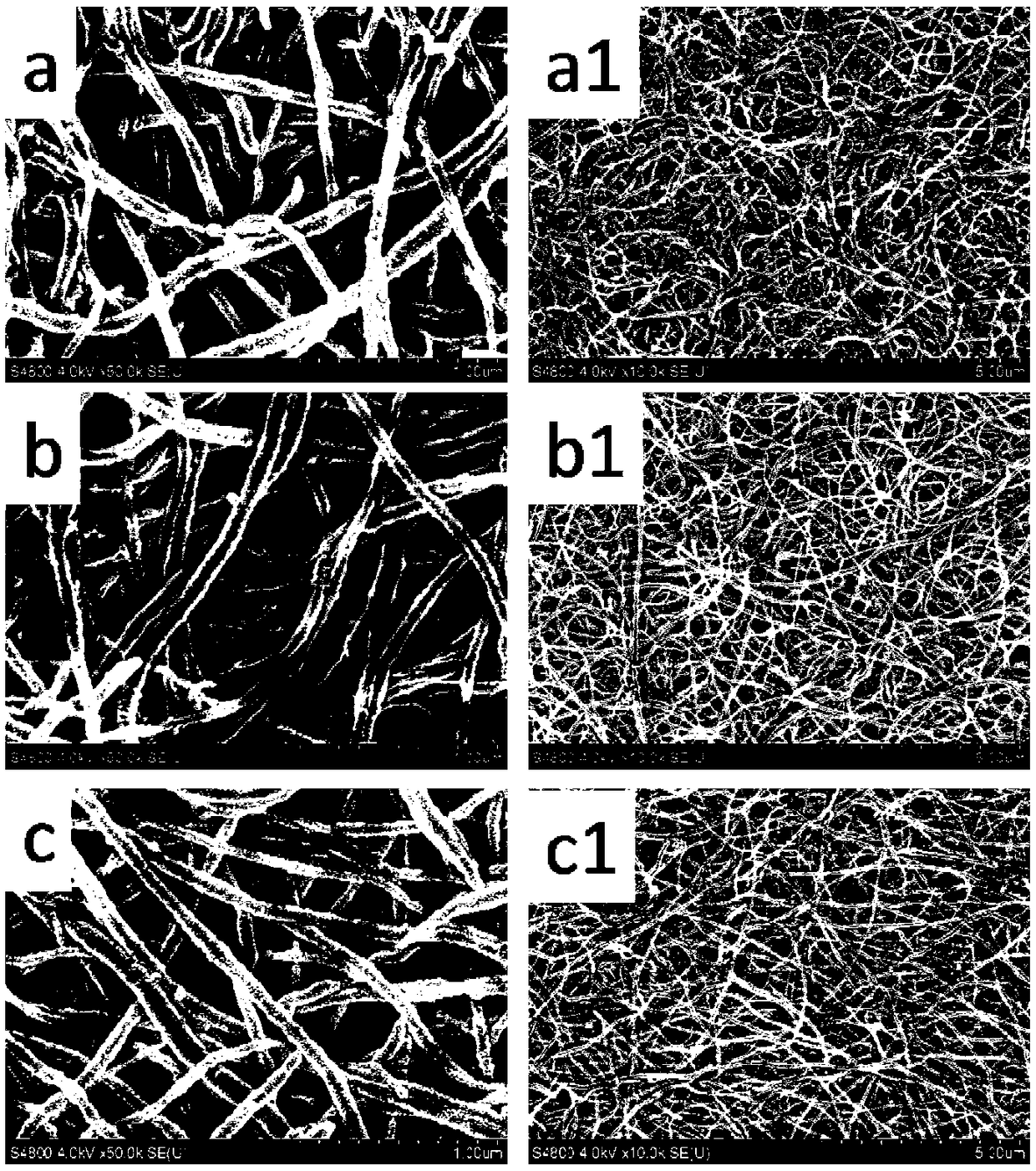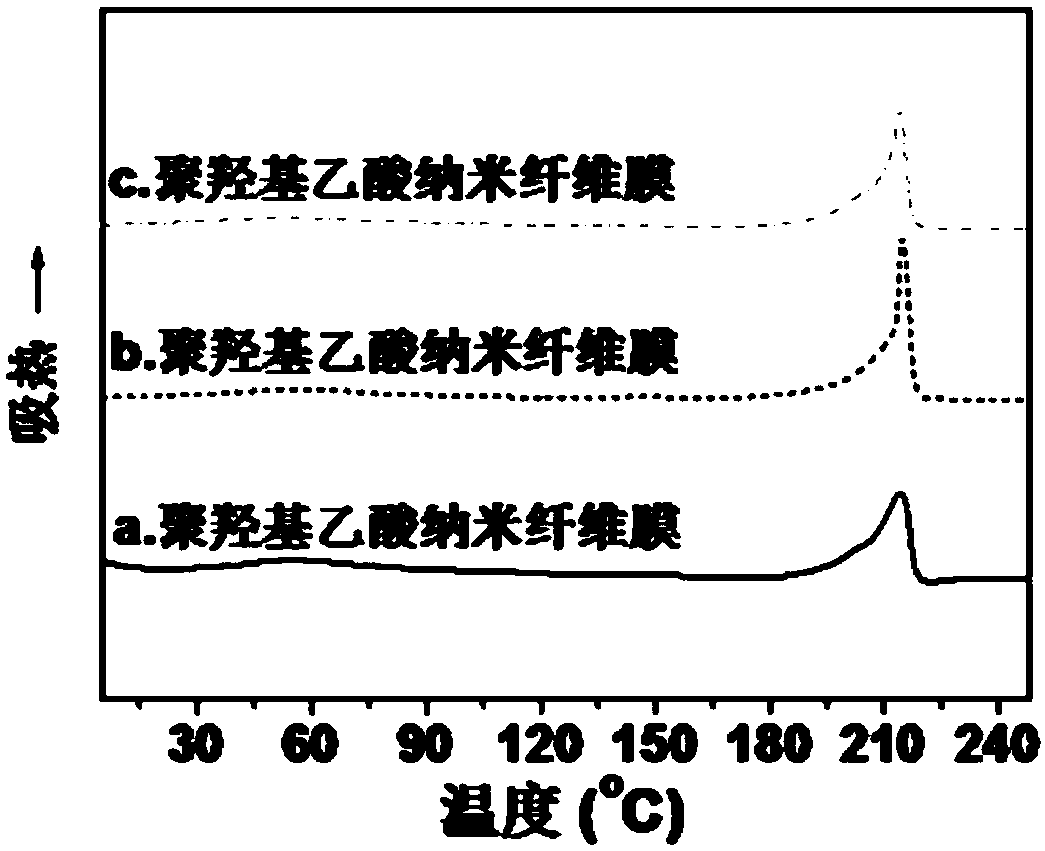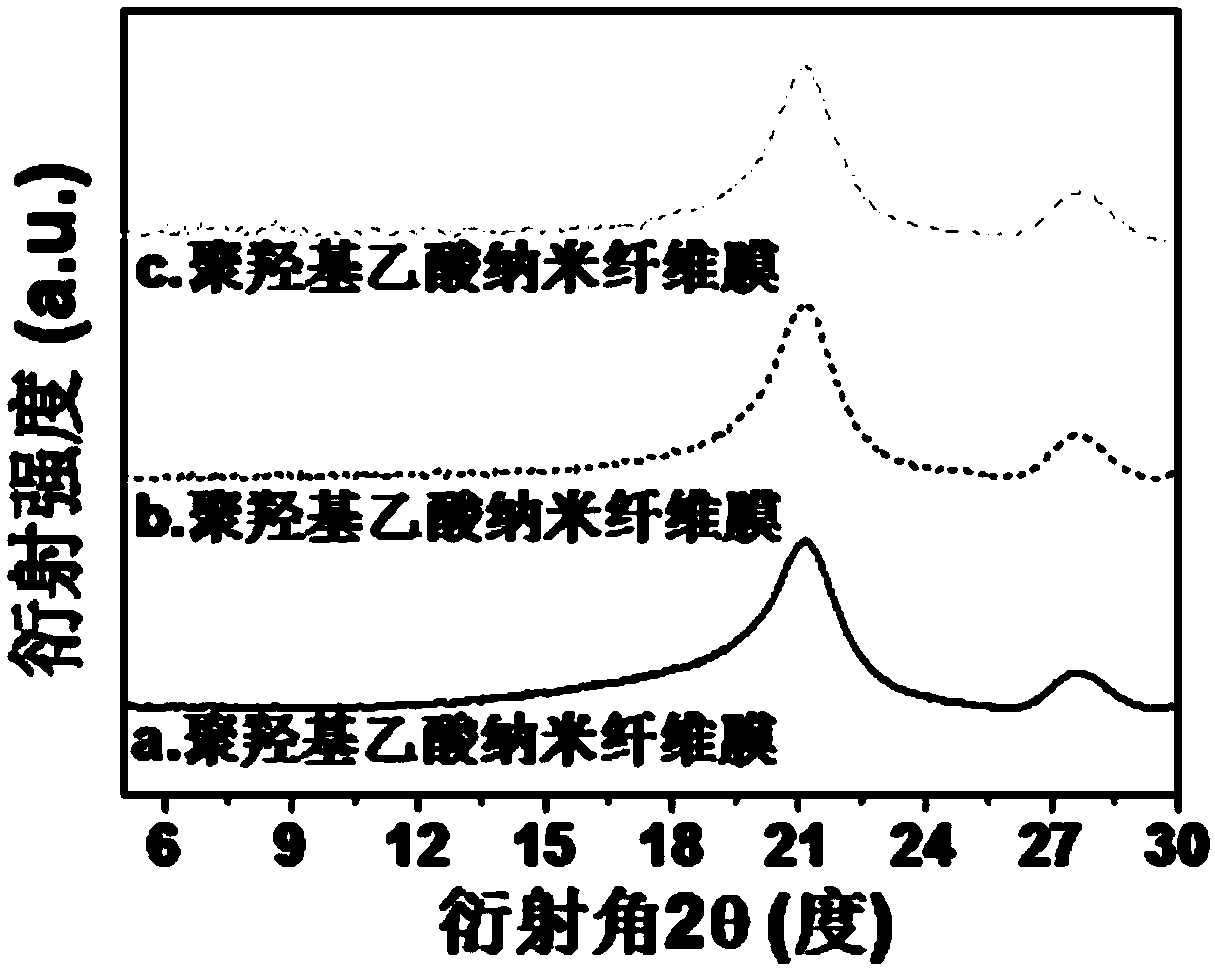Super-hydrophilic and biodegradable oil-water separation membrane and preparation method thereof
An oil-water separation membrane and super-hydrophilic technology, which is applied in the field of polyglycolic acid nanofiber oil-water separation membrane and its preparation, can solve the problem of polyglycolic acid nanofiber membrane not having hydrophilicity, low electrospinning production efficiency, and process conditions Complicated problems, to achieve the effect of improving degradation resistance, regular structure, and high spinning speed
- Summary
- Abstract
- Description
- Claims
- Application Information
AI Technical Summary
Problems solved by technology
Method used
Image
Examples
Embodiment 1
[0038] Take polylactic acid with a weight-average molecular weight of 600,000 and a molar content of L optical isomer of 90% and polyglycolic acid with a weight-average molecular weight of 60,000 for vacuum drying at a drying temperature of 90±5°C and a drying time of 16 hours. The water content is 40ppm; 99 kg of dried polylactic acid and 1 kg of dried polyglycolic acid are physically mixed in a high-speed mixer; the mixture is injected into a single-screw extruder to melt, and extruded through a metering pump and a spinneret hole. When the spinning temperature is 242°C and the spinning speed is 2500m / min, the polylactic acid / polyglycolic acid blended fibers with an average diameter of 50 microns are collected, and the prepared weight is 120 g / m 2 The spunlace non-woven fabric is heat-treated by passing the non-woven fabric at a speed of 6 m / min through a 6-meter-long constant-temperature hot box with a temperature of 180°C. The heat treatment time is 60 seconds, and then intr...
Embodiment 2
[0041] Take polylactic acid with a weight-average molecular weight of 60,000 and a molar content of L optical isomer of 96%, and polyglycolic acid with a weight-average molecular weight of 600,000 for vacuum drying at a drying temperature of 90±5°C and a drying time of 16 hours. The water content is 42ppm; 97 kg of dried polylactic acid and 3 kg of dried polyglycolic acid are physically mixed in a high-speed mixer; the mixture is injected into a single-screw extruder to melt, and extruded through a metering pump and a spinneret hole. When the spinning temperature is 235°C and the spinning speed is 500m / min, the polylactic acid / polyglycolic acid blended fibers with an average diameter of 80 microns are collected, and the prepared weight is 70 g / m 2 The woven fabric is heat-treated by passing the woven fabric at a speed of 12m / min through a 6-meter-long, 160°C thermostat for 30 seconds, and then introduced into a cold water bath with a temperature of 5°C. Rapid cooling to room t...
Embodiment 3
[0044] Take polylactic acid with a weight-average molecular weight of 60,000 and a molar content of L optical isomer of 88% and polyglycolic acid with a weight-average molecular weight of 100,000 for vacuum drying at a drying temperature of 90±5°C and a drying time of 16 hours. The water content is 50ppm; 95 kg of dried polylactic acid and 5 kg of dried polyglycolic acid are physically mixed in a high-speed mixer; the mixture is injected into a single-screw extruder to melt, and extruded through a metering pump and a spinneret hole. When the spinning temperature is 239 °C and the spinning speed is 4500 m / min, the polylactic acid / polyglycolic acid blended fibers with an average diameter of 10 microns are collected, and the prepared weight is 70 g / m 2 Needle-punched non-woven fabrics; the non-woven fabrics are heat-treated at a speed of 9 m / min through a 6-meter-long, 190-degree constant-temperature hot box, and the heat-treatment time is 45 seconds, and then introduced into a co...
PUM
| Property | Measurement | Unit |
|---|---|---|
| thickness | aaaaa | aaaaa |
| pore size | aaaaa | aaaaa |
| diameter | aaaaa | aaaaa |
Abstract
Description
Claims
Application Information
 Login to View More
Login to View More - R&D Engineer
- R&D Manager
- IP Professional
- Industry Leading Data Capabilities
- Powerful AI technology
- Patent DNA Extraction
Browse by: Latest US Patents, China's latest patents, Technical Efficacy Thesaurus, Application Domain, Technology Topic, Popular Technical Reports.
© 2024 PatSnap. All rights reserved.Legal|Privacy policy|Modern Slavery Act Transparency Statement|Sitemap|About US| Contact US: help@patsnap.com










